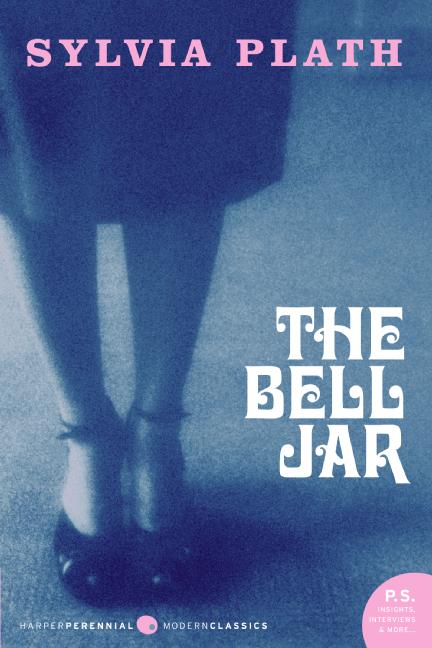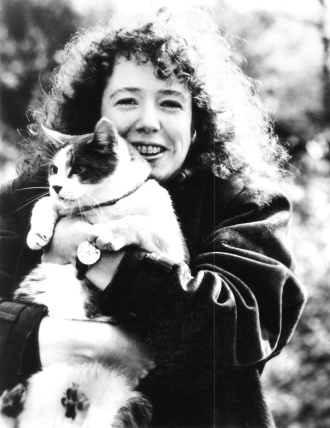Sylvia Plath's only novel, The Bell Jar, is a generally bleak piece of fiction in itself, but knowing that this book is partially an autobiographical account of Plath's struggles and knowing what happened to her in the end just makes it all the more depressing. Plath incorporates pieces of herself in the form of Esther Greenwood, an intern at a fashion magazine. She falls into a deep state of depression, and as she's numb in the present and oftentimes thinking of the past, she seems to be losing her mind. But of course, when readers encounter this book today, we consider all of Plath's ties to the scenario, and as much as we want Esther Greenwood to be okay, we also want Sylvia to be okay... But she wasn't.
The Bell Jar itself is a very emotional novel, but like I said, knowing Plath's history makes it even more depressing. It's just harder to take in knowing that someone was really feeling like this, that someone was that desperate to die. While it's easy to feel sympathetic for Esther Greenwood/Sylvia Plath, it isn't so easy (for me) to relate to the situation, but I feel like if I could relate, it would've been a very long, overwhelming read (despite the book itself is small) because it's so honest. It reveals so much in such a natural style.
Esther tells us about quite a few experiences she's had, between the death of her father, her time in New York at a fashion magazine, and her relationship with Buddy Willard. They all add up; the memories weigh heavily on her mind. Her grip on reality loosens gradually, for she begins this tumult of severe depression and anxiety by withdrawing bit by bit. We also get to read about her experiences with electroshock therapy, and how that first time made her frightened of any treatment of the sort for a while. I've never read anything of the sort before.
But what I believe this novel seems to do best is capture readers with flowy, basically perfect writing. Plath's prose is gorgeous; The Bell Jar is incredibly well-written. I could tell that much just by reading the first half of the first page. There are so many beautiful (and sad) quotes within that I kept going back to reread them and absorb them once again. I also really loved the poem featured at the end, "Mad Girl's Love Song." Plath is just such a talented writer; The Bell Jar may be her only novel, but I am definitely going to read all her poetry.
Plath's beautiful prose is half the allure of The Bell Jar. She just has ways of saying things that just sound so perfectly fitting. But unfortunately, the other half of the allure is seeing a glimpse of how she was really feeling. It isn't a happy read. It's gloomy and devastating, but it's honest, and it stays in one's thoughts after finishing.
Esther tells us about quite a few experiences she's had, between the death of her father, her time in New York at a fashion magazine, and her relationship with Buddy Willard. They all add up; the memories weigh heavily on her mind. Her grip on reality loosens gradually, for she begins this tumult of severe depression and anxiety by withdrawing bit by bit. We also get to read about her experiences with electroshock therapy, and how that first time made her frightened of any treatment of the sort for a while. I've never read anything of the sort before.
But what I believe this novel seems to do best is capture readers with flowy, basically perfect writing. Plath's prose is gorgeous; The Bell Jar is incredibly well-written. I could tell that much just by reading the first half of the first page. There are so many beautiful (and sad) quotes within that I kept going back to reread them and absorb them once again. I also really loved the poem featured at the end, "Mad Girl's Love Song." Plath is just such a talented writer; The Bell Jar may be her only novel, but I am definitely going to read all her poetry.
Plath's beautiful prose is half the allure of The Bell Jar. She just has ways of saying things that just sound so perfectly fitting. But unfortunately, the other half of the allure is seeing a glimpse of how she was really feeling. It isn't a happy read. It's gloomy and devastating, but it's honest, and it stays in one's thoughts after finishing.







